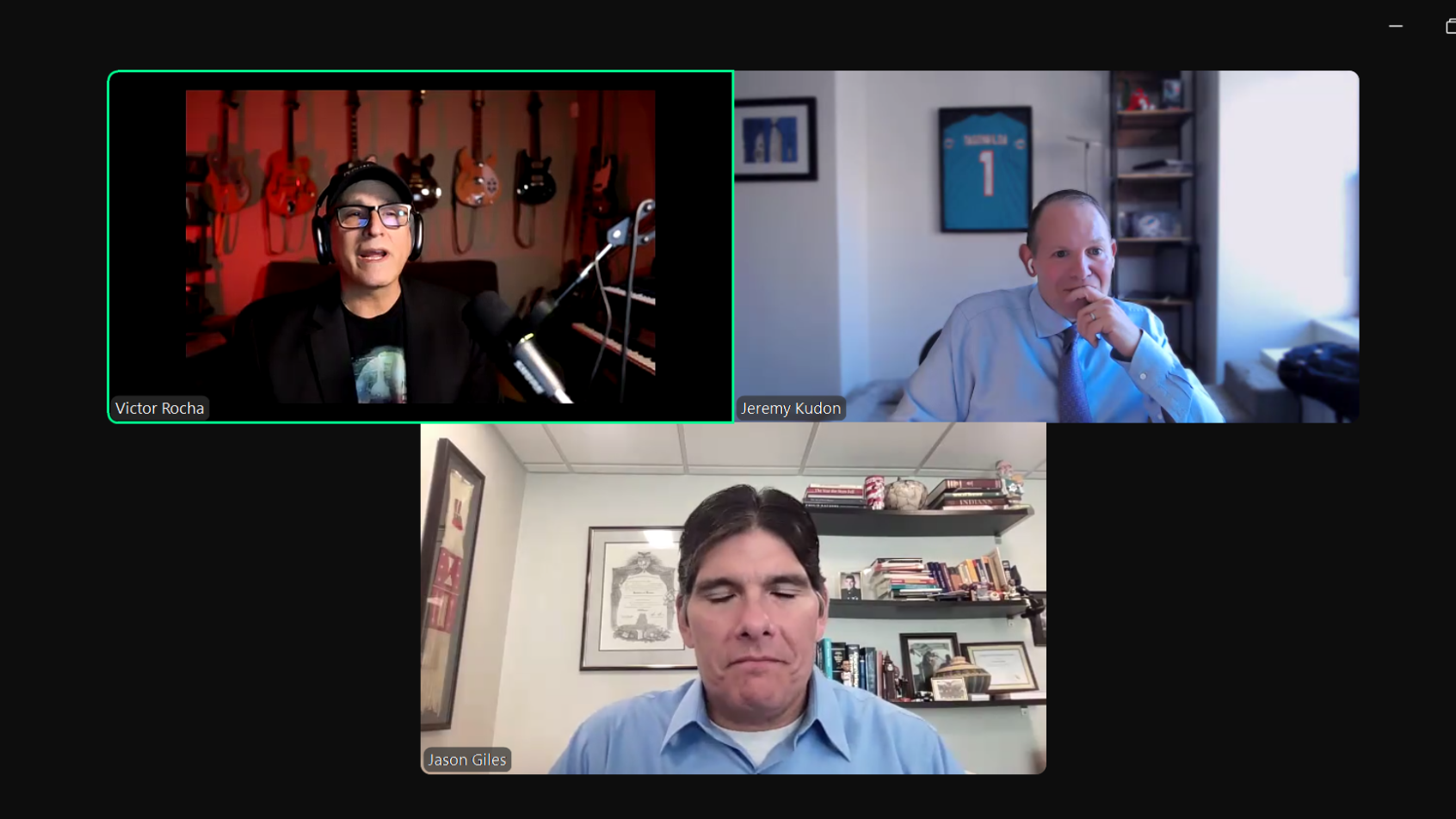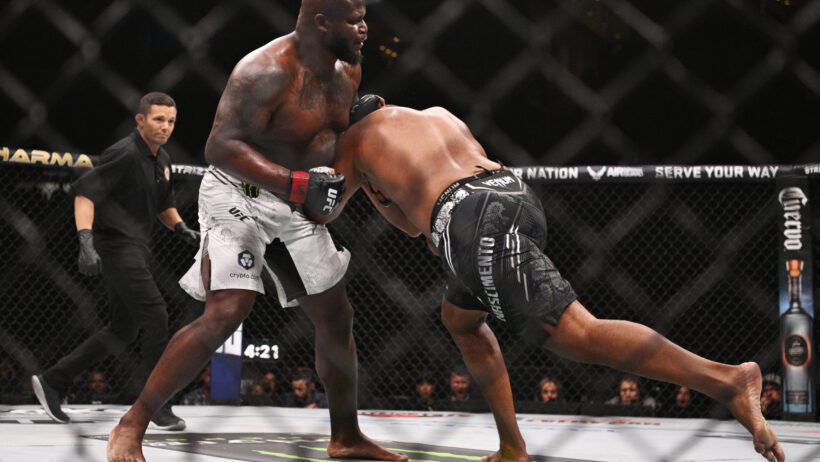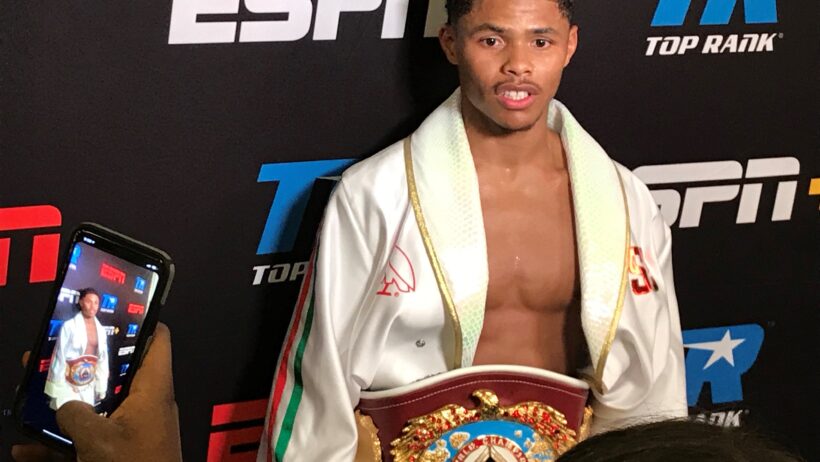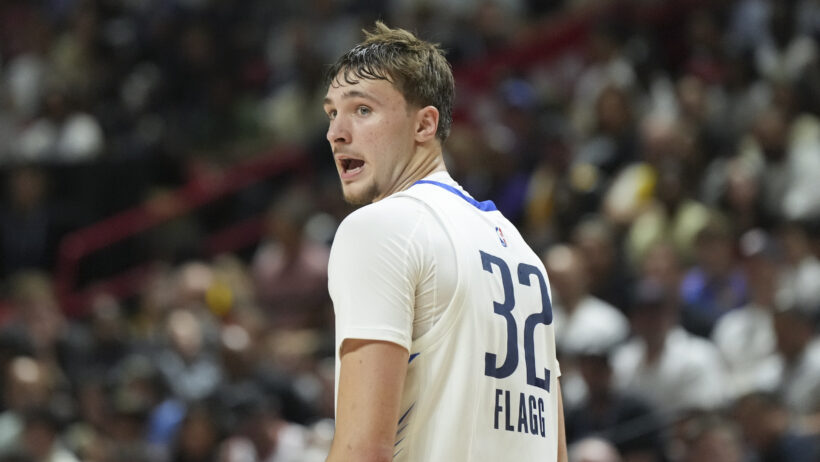Sports Betting Alliance Aligns with California Tribes Against Sweepstakes
By Robert Linnehan in Sports Betting News
Updated: October 24, 2024 at 8:38 am EDTPublished:

- Jeremy Kudon, president of the Sports Betting Alliance, today spoke out against sweepstakes gaming
- Kudon joined Victor Rocha, conference chairman of the Indian Gaming Association, in a discussion on sweepstakes and DFS
- Called for the tribes, regulated gaming companies to “root out” pandemic of unregulated gaming
The Sports Betting Alliance, which represents FanDuel, DraftKings, Fanatics Sportsbook, and BetMGM, is in step with California tribal leadership and its campaign to stamp out unregulated gaming in California.
Jeremy Kudon, president of the Sports Betting Alliance, today joined Victor Rocha, conference chairman of the Indian Gaming Association, and Jason Giles, executive director of the Indian Gaming Association, on The New Normal podcast to discuss the proliferation of sweepstakes gaming in California and the presence of DFS 2.0.
“The regulated operators, the tribal sovereign nations, let’s root out unregulated gaming. It’s like a pandemic right now,” Kudon said.
Sweepstakes Gaming Does Not Abide by Regulations
Sweepstakes gaming offers users free to play options, but also offers the potential to purchase “sweepstakes coins” or types of “virtual cash” to use as real-money play options to skirt the law and gaming regulations. Kudon said it is incredibly frustrating to work for months, or years, on a gaming bill, see its passage, and then have sweepstakes companies come into a state to offer their brand of unregulated gaming with no barrier to entrance or requirements for licensing.
Why would the Sports Betting Alliance sit back and allow the presence of this type of gaming in a state when legal operators, such as DraftKings or FanDuel, pay millions in licensing fee, pay high tax rates on their revenues, and are required to abide by a long list of regulations and compliances?
“It’s a huge point of frustration,” Kudon said.
In California, more than $500 million was spent on either side of the defeated sports betting ballot initiative. The tribes and operators went through a lot of pain, hardship, and frustration, but now seem to be on the same page about allowed the tribes to lead gaming efforts in California.
“We’re all going to work together to do the right thing, but then you have these companies come right in and say it’s just a sweepstakes. The lost revenue alone, and how important that revenue is to your tribes, is frustrating and infuriating,” Kudon said.
Kudon also pointed to Fliff, which brands itself as a “social sportsbook,” which acts in the same way as a sweepstakes company. It offers free-to-play games for its users, but also a real-cash option that is tantamount to unregulated sports betting.
Fliff is rampant across the U.S. throughout college campuses, Kudon said.
These games are “hiding in plain sight” in many states, he described. State Attorney General’s typically have more important issues to worry about, but if brought to light they’ll be more likely to bring action.
DFS in California Raising Questions
The participants also discussed DFS in the state, with the conversation becoming slightly murky as to what is acceptable in California and what is not. California’s DFS market is gray, where operators offer DFS games despite the state not regulating or taxing them.
Kudon brought up DFS 2.0, especially contests where user plays against the house, and described the offerings as nothing more than parlay prop bets, which need to be licensed and regulated as such. He criticized the current PrizePicks and Underdog Fantasy’s peer-vs.-house pick’em contests in the state, which he described as nothing more than an unlicensed sportsbook offering sports bets to its customers.
However, he did say that peer-to-peer DFS 2.0 contests are more aligned with skill-based games and not to be considered as sports betting. DraftKings, an SBA member, currently offers Pick 6 contests in California. The Pick 6 game is similar to what PrizePicks and Underdog Fantasy offers, but is peer-to-peer based instead of against the house.
Kudon told Sports Betting Dime he would be amenable to the presence of Underdog Fantasy and PrizePicks in California if they only offered their peer-to-peer contests. Both companies have games that are peer-to-peer, but neither offer them in California.
During last week’s episode, James Siva, chairman of the California Nations Indian Gaming Association, said it was his opinion that DFS is illegal in every form in the state.
“The fact is, according to the California constitution, DFS is illegal in every way,” he said.

Regulatory Writer and Editor
Rob covers all regulatory developments in online gambling. He specializes in US sports betting news along with casino regulation news as one of the most trusted sources in the country.



